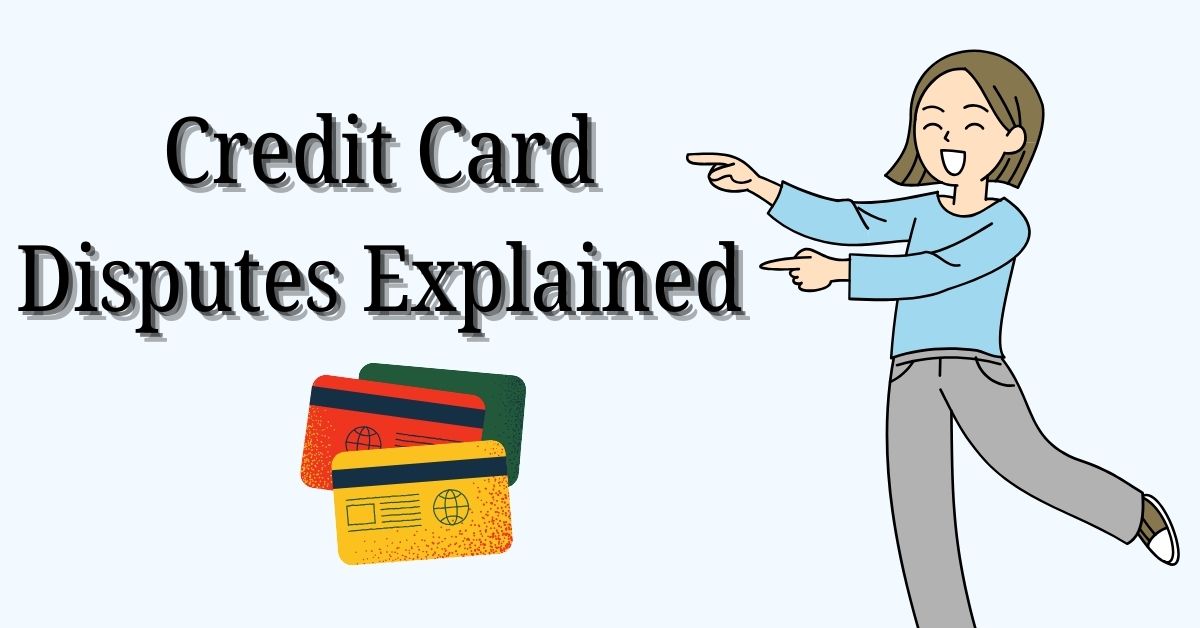

Credit Card Disputes Explained for Indian Consumers
Credit cards are an integral part of Indian life today. They simplify and make convenient shopping, booking travel, paying utility bills and converting EMI. But where there is money, controversies exist. Unauthorised transactions, duplicate charges, refused refunds, improperly applied charges, and EMI miscalculations are pain areas for all cardholders. Knowing how disputes are resolved, what your rights are and what escalation channels are available can save you time, money and anxiety.
This detailed summary provides an overview of the Indian law and regulatory environment, the typical disputes, a step-by-step dispute resolution playbook, consumer rights, escalation mechanisms, including the RBI Ombudsman and consumer forums, tips and tricks, templates and examples.
Why Credit Card Disputes Are Important
Credit card disputes are important for three reasons. Firstly, money is involved. A disputed debit ties up your money and can sometimes result in irretrievable loss if not managed appropriately. Second, your billing cycles and credit score can be impacted, since outstanding disputes occasionally result in payment defaults or interest charges. Third, there is time and hassle involved. It may take weeks to pursue a refund or contest a fraudulent charge, but if you know the proper procedure, you can reduce the ordeal significantly.
Legal and Regulatory Framework in India
The Reserve Bank of India is the main regulator of banks as well as credit card issuers. RBI, in 2017, came out with its historic circular “Customer Protection – Limiting Liability of Customers in Unauthorised Electronic Banking Transactions.” This circular clearly mentions that customers are not liable at all in case of a fraudulent or unauthorised transaction if they notify the bank within three working days of getting an alert or a statement. If within four to seven days, the liability is limited. After that, it relies upon the bank’s policy, but the RBI has instructed banks to adopt equitable and transparent practices.
RBI Regulations and Customer Protection
RBI also introduced the Integrated Ombudsman Scheme in 2021. This scheme consolidated older ombudsman schemes onto a single platform and formed a cost-free, impartial platform where customers can lodge complaints against regulated institutions. In order to avail this scheme, the first thing you need to do is make a complaint to the bank. If the bank does not settle the issue within thirty days, or if it is not satisfactory, you may file with the Ombudsman under RBI’s Complaint Management System. A complaint should be made within one year of the bank’s response or within one year and thirty days in case of no response.
Besides RBI, international card networks such as Visa, Mastercard, RuPay and American Express run formal chargeback mechanisms. These mechanisms establish categories of dispute, timelines and rules of evidence. Your bank, being the issuing bank, works through these networks with the merchant’s bank, the acquiring bank, to probe and reverse a disputed transaction.
Lastly, the Consumer Protection Act, 2019, offers another strong legal recourse. In case a bank or trader does not redress a grievance, you may approach the consumer commissions. Your case can be filed in a District Commission, State Commission or National Commission, depending on the value of your claim. These bodies deal with cases of “deficiency of service” and can order not only refunds but also compensation for harassment or mental agony.
Common Disputes of Credit Cards
Fraudulent or unauthorised transactions are among the most common disputes. They occur when a card gets lost, stolen or compromised via hacking or phishing. It is important to report such incidents soon. Duplicate billing is also a common dispute, usually resulting from system malfunctions. For instance, a payment may timeout at a merchant’s POS device yet still cause two postings to occur.
Merchant-related grievances are common as well. These consist of non-delivery of goods or services, delivery of sub-standard products, or cancellation of bookings when refunds are not made. Refund delays are especially prevalent in India’s e-commerce and online travel domains, where merchants send refund confirmations but banks do not credit them on time.
Hidden or misstated charges also cause disputes. Banks incidentally impose annual charges, delayed payment charges or GST charges without transparency. Disputes on EMIs are increasing as more and more customers convert their spending into instalments. Mistakes are in the form of wrong interest rates, incorrect tenure of EMI or increased charges than quoted.
The Step-by-Step Dispute Resolution Process
When you identify a disputed transaction, the initial thing to do is move fast. In case of fraud, RBI’s zero-liability only covers you if you report within three working days. The second is to cross-check and document. Look at your SMS and email notifications, card statement, and merchant receipts or emails. Take screenshots and retain all evidence.
If it is a matter of non-delivery of service or goods, call the merchant first. Merchants may release refunds earlier than banks. Document chats, emails and responses. If merchant support does not work, proceed to the next step: file a written complaint with your issuing bank. Use formal channels such as the bank’s mobile banking app, netbanking, secure email or the complaint form. Provide information like date, time, amount, merchant name and cause of complaint. Request for a complaint reference number.
If the matter is a case of fraud, ask the bank to block or replace the card immediately. Request the bank to make a formal investigation or a chargeback, as the case may be. Submit all evidence in a timely manner and assist the bank with its requests for documentation.
Most banks grant provisional or temporary credit during the period of investigation, particularly for fraudulent transactions. This avoids you being overcharged interest while the investigation is being carried out. Upon investigation, the bank will inform you of the outcome. If the dispute is approved, the bank ought to re-credit the disputed amount. In case of rejection, the bank is to give the reasons and supporting evidence.
If you’re not satisfied, go to the bank’s nodal officer. If still not resolved, approach the RBI Ombudsman with a complaint. And if nothing works, go to the Consumer Forum of the Consumer Protection Act.
Evidence, Timelines and Expectations
Evidence wins or loses a case. SMS and email confirmations, merchant receipts, delivery proof, bank statements, chats and emails all support your case. Save everything in one folder at hand, which you can access easily.
Timelines also matter. Fraud must be reported within three working days for full protection. Banks have to acknowledge complaints and, in many cases, are obliged to recredit within seven working days of a complaint being made; failure to do so may result in compensation being applicable. The Ombudsman can be approached thirty days after making a complaint to the bank. Chargeback windows differ based on reason code and network, but typically range from forty-five to one hundred and twenty days from the transaction date.
Escalation Routes
Banks must put their grievance redressal systems and nodal officer contact information on their websites. Always escalate in writing so there is a paper trail. If the bank does not respond, complain to the RBI Ombudsman on the Complaint Management System at cms.rbi.org.in. The Ombudsman can order refunds, corrections and compensation.
If Ombudsman relief is not available or adequate, consumer forums of the Consumer Protection Act are the next recourse. You may appear pro se in District Commissions, although attorneys are of assistance in complicated or higher-value cases. If all else fails, civil courts are also an option, but tend to be slower and more costly.
Rights of Cardholders
As a cardholder in India, you have certain rights. Upon filing a complaint, you should receive an immediate acknowledgment along with a complaint reference number. In cases of unauthorised transactions reported on time, liability is limited or may even be zero. Most instances allow for provisional credit, and complaints can be referred to nodal officers or the RBI Ombudsman. Banks are also required to disclose the basis on which disputes are resolved. In some cases, compensation may be provided if banks exceed the RBI-mandated timeframes.
Practical Solutions for Optimal Dispute Resolution
Prevention is the best medicine. Allow SMS and email notifications on all card transactions. Tokenise or have virtual card numbers for online transactions. Don’t save your card details on each site. Check your statements on a monthly basis and limit transactions via your bank app when possible.
If you find yourself subject to a dispute, you must act quickly. If you are concerned about possible fraudulent activity, close your credit card. Take screenshots and keep your receipts. Write a complaint to your bank regarding the dispute. Just pay the portion of your credit card bill that is not disputed – this will protect your credit. If the bank is not acting quickly enough, send a letter escalating the complaint, quoting the relevant RBI guidelines to strengthen your assertion.
Real-World Examples
A customer was once charged twice for a hotel booking through an online travel portal because the payment gateway timed out. By filing a chargeback request with supporting evidence, the duplicate charge was reversed within forty-five days. In another case, a cardholder spotted a fraudulent international transaction and reported it within forty-eight hours. The bank applied the RBI’s zero-liability policy and refunded the full amount. The third instance was one of a flight that was cancelled and for which the airline issued a refund that did not get credited to the cardholder’s account. It took months for the cardholder to approach the RBI Ombudsman and claim the refund as well as the compensation.
Frequently Asked Questions
Cardholders have often asked how quickly to report a suspected fraud. The answer is straightforward: immediately and at the latest within three working days. Another general concern is whether interest is charged on amounts in dispute. If the bank has granted provisional credit, no interest will be charged on the amount in dispute, but always make payment for your undisputed bills. Merchants sometimes do not give back money, but card associations permit chargebacks where merchants do not provide. Chargebacks take thirty to ninety days based on complexity.
Final Checklist
When you notice a dispute, note the date and time, capture screenshots of alerts and statements, call up the merchant if applicable, lodge a written complaint to the bank and request a reference number, block your card if required, and escalate step by step till closure. If not settled by the bank, proceed to the RBI Ombudsman and then to the Consumer Forum.
Conclusion
Disagreements over digital payments are a fact of modern life, but India’s regulatory scheme establishes many consumer protections. While disputes cannot always be avoided, by acting quickly, keeping meticulous records, and escalating your complaint if necessary, you can nearly always get a fair resolution. The laws are on your side – your best approach is to act quickly, keep careful records and be persistent.









Leave a Reply